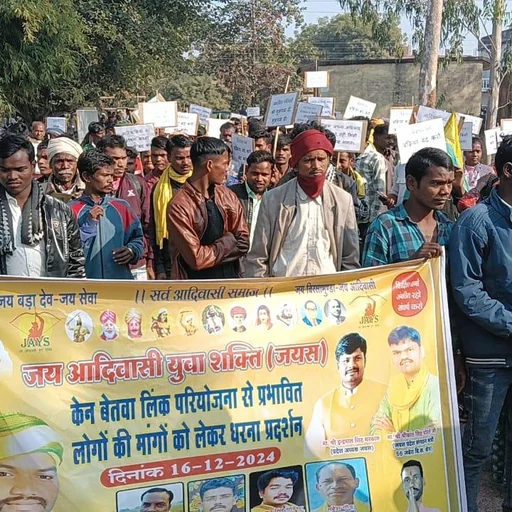A major water project in India, the Ken-Betwa Link Project, is facing resistance from tribal communities. This project, which aims to solve water shortages in the Bundelkhand area, has become a source of worry for local indigenous groups. Prime Minister Narendra Modi recently launched the project, but these communities fear it will lead to their displacement and the loss of their traditional way of life.
The heart of the conflict lies in the project’s potential impact on tribal lands. These communities rely heavily on the land and forests for their daily survival. They worry that the project will submerge their ancestral lands, destroying their homes and livelihoods. As a result, they are demanding the government consult with them properly, offering fair compensation and adequate rehabilitation if the project proceeds. One tribal leader expressed the group’s frustration, stating, “This is our land, our home, and they want to take it away.”
Furthermore, the project’s launch has only heightened these tensions. The tribal groups argue that the project’s planning did not adequately consider the negative social effects. They claim their concerns have been overlooked. Moreover, these groups believe the environmental assessment did not fully account for the impact on their communities. Consequently, the indigenous people are calling for the government to listen to their concerns and address them.
The situation emphasizes the difficulties in managing large development projects while respecting the rights and needs of marginalized communities. The clash highlights the need for better communication and collaboration between the government and local populations, especially when projects have the potential to cause such significant disruption to their lives. In conclusion, this project, intended to bring progress, is instead creating anxiety and displacement for the indigenous people it impacts.
